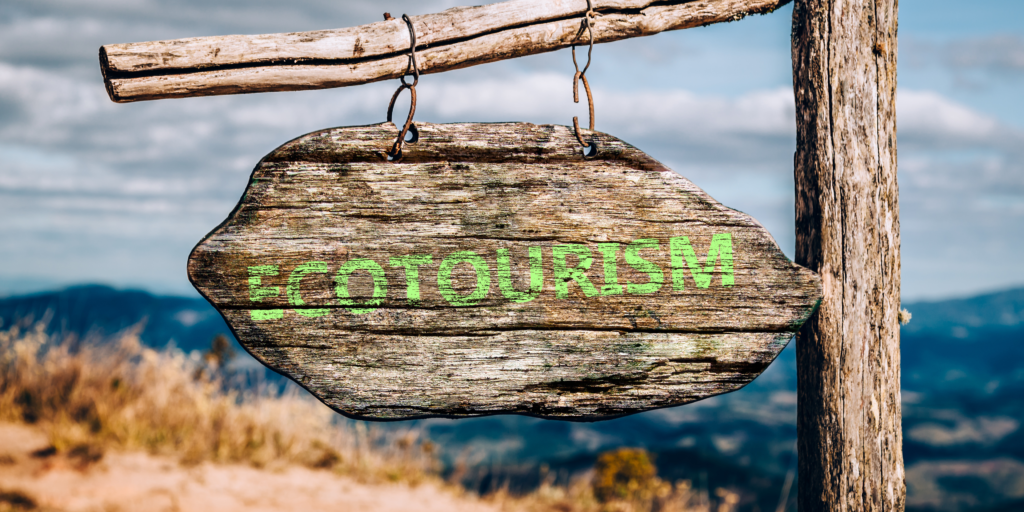
Written by Nawal Ovais (she/her)
Today on Clear the Air is our first guest blog post, written by Nawal Ovais. Ecotourism is about travelling sustainably, but how truthful are these claims? Nawal shares her thoughts. If you are interested in submitting your own story to be published on Clear the Air, click here to learn more.
Ecotourism is an issue derived from greenwashing, a deceptive form of marketing that presents an activity as sustainable to meet a personal agenda when it is not environmentally friendly to begin with. It is about time people realized that there is nothing ‘eco’ about this emerging concept called ‘ecotourism’.
Ecotourism is the concept of travelling sustainably and does not contribute to the degradation of the environment. However, many may argue otherwise and claim that there is no such thing as sustainable travel. The idea of ecotourism has more negative aspects which can be overshadowed by the little good that it claims to bring.
Ecotourism is not as eco-friendly as it may present itself to be. I believe when looking at the other side of this debate, it is understandable why the ecotourism industry would try to sell itself as a sustainable entity. At the end of the day, a business’s main goal is to simply please its customers and bring home profit. With the help of this young concept, the ecotourism industry aims to do exactly that as it is existing on the supposed basis of ‘environmental conservation.’ These tourism efforts supposedly raise awareness of wildlife issues and sustainable travelling by keeping local communities in mind.
Even though this is a beneficial idea, the ecotourism industry has a massive detrimental impact on the environment. One of the biggest reasons why ecotourism is not as sustainable as it claims to be is because of how this industry impacts the local communities of countries susceptible to ecotourism. Many tourists travel to places such as Hawaii or Africa to experience a week of an ‘exotic’ lifestyle. This can negatively impact the natives and locals residing within the community. Indigenous communities are usually disregarded when the ecotourism industry implements ‘safe’ and ‘sustainable’ practices and policies. It is evident around the world that Indigenous populations are continuously taken advantage of and exploited through the empty and unkept promises made by their governments. The effects of the ecotourism industry and the revenue that it can generate allow these governments to get away with exploiting local communities negatively impacted by ecotourism. Locals are forced to give up their land for the pleasure of tourists searching for a ‘soul-defining’ and ‘life-changing’ experience that will encourage them to love and care for the environment. But why is this enlightenment experience a luxury for some, taken for advantage by few, and cost everything for others?
Modern ecotourism is harming our fragile world. There is a lack of accountability and consequences. The biggest reason is that there are not enough regulations or experiences for what to do when an ecotourism company is not living out its goal: to help preserve the environment.
One should not disregard and ignore the negative consequences, including the spread of diseases, invasive species, and excessive consumption from rising tourism demands. These consequences only scratch the tip of the iceberg of the catastrophic damages associated with ecotourism.
The environment is dying. If sustainable ecotourism practices are not implemented now, then it will be too late for change. To make genuinely sustainable ecotourism possible, governments must play an active role in ecotourism policy and implementation within their respective states. A healthy business can only thrive if health and respect for the environment are also ensured. If done right, ecotourism can boost a nation’s economy while conserving the environment.
I truly believe that only through raising our voices will the government take action. It is our responsibility to do everything we can to help limit our negative impacts on the environment and ensure that tourism moving forward is sustainable. Tourists can walk instead of drive when possible and avoid littering or damaging wildlife and local communities. Simply being more aware of your actions helps create a sustainable environment.
Now the question is, what will you do to support sustainable tourism?
Want to publish your own story on Clear the Air? Click here to learn more.


3 comments
Very informative and good work
Very well narrated article , well done
Well written!